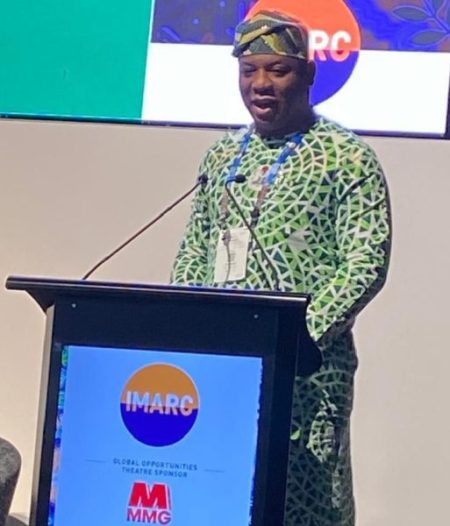08 November 2014, Lagos – The High Court in the United Kingdom has lifted a secrecy order imposed on a 2013 legal challenge by The Corner House (a Non-Governmental Organisation) of a decision by the British Crown Prosecution Service (CPS) not to freeze some $215 million in alleged proceeds of crime from the controversial Malabu oil deal.
The UK Parliament’s Public Accounts Committee had in March this year released a highly critical report on confiscation orders, highlighting the CPS failure to recover assets deemed proceeds of crime. A Home Office assessment of current legislation, undertaken by Michael Beloff, QC, is also widely understood to be critical of it. But the Home Office has refused to release Beloff’s report to The Corner House.
 According to a report monitored on the website of The Corner House on Friday, the application for permission to bring a judicial review of the CPS failure to act was held in secret, at the request of the CPS, because of the danger of “tipping off” those being investigated by the police.
According to a report monitored on the website of The Corner House on Friday, the application for permission to bring a judicial review of the CPS failure to act was held in secret, at the request of the CPS, because of the danger of “tipping off” those being investigated by the police.
With the secrecy order lifted, the Home Office will now have to release Beloff’s report to The Corner House while all the secrecy associated with the investigations will now be made public.
The funds arose from the sale of one of Nigeria’s largest offshore oil concessions, known as OPL 245, to subsidiaries of oil multinationals Royal Dutch Shell and ENI.
Police in the UK and magistrates in Italy are now formally investigating the deal. Both companies deny any illegal conduct.
The OPL 245 concession was originally awarded in 1998 by the then oil minister, Dan Etete, to Malabu Oil and Gas, a company that he set up and owns – in effect Etete awarded one of Nigeria’s most lucrative oil blocks to himself.
In 2011, Shell and ENI paid $1.1 billion, plus a signature bonus of $200 million, to the Nigerian government for the concession.
In a back-to-back deal negotiated by the Attorney General of Nigeria, the Nigerian government then undertook to transfer $1.1 billion to Etete’s company, Malabu.
The deal effectively converted into money an asset that had been acquired by Malabu Oil and Gas in highly suspicious, possibly illegal, circumstances. Shell and ENI deny paying any money to Malabu Oil and Gas. But they were aware and in agreement that the deal was for the benefit of Malabu.
In 2011, a middleman acting for Malabu sued the company in the UK Commercial Court for fees he claimed he was owed for services rendered to Malabu in the sale of OPL 245. Pending the outcome of the case, the Court froze some $215 million from the proceeds of the oil concession sale.
The Corner House, together with anti-corruption watchdog, Global Witness and Re:Common, an Italian Non Government Organisation, and Dotun Oloko, a Nigerian anti-corruption campaigner, wrote to this Court raising concerns that the frozen funds were proceeds of crime. The group also requested the London Metropolitan Police’s Proceeds of Corruption Unit (POCU) and the Italian authorities to investigate.
Although the police sought action under the Proceeds of Crime Act, the Crown Prosecution Service (CPS) declined to initiate proceedings. The Corner House therefore sought a judicial review of the CPS’s decision, arguing that:the OPL 245 deal was corrupt and illegal under both Nigerian and UK law; it was likely, on the available evidence, that a substantial part of the monies paid to Malabu had been used to pay bribes; and the CPS’s failure to act was unlawful.
In March 2014, the High Court refused permission to bring a judicial review because the CPS had assured the Court that it was still considering taking action.
In July 2014, however, following the commercial court ruling in favour of the middleman, more than $110 million of the suspect funds left the UK for Switzerland.
– This Day



